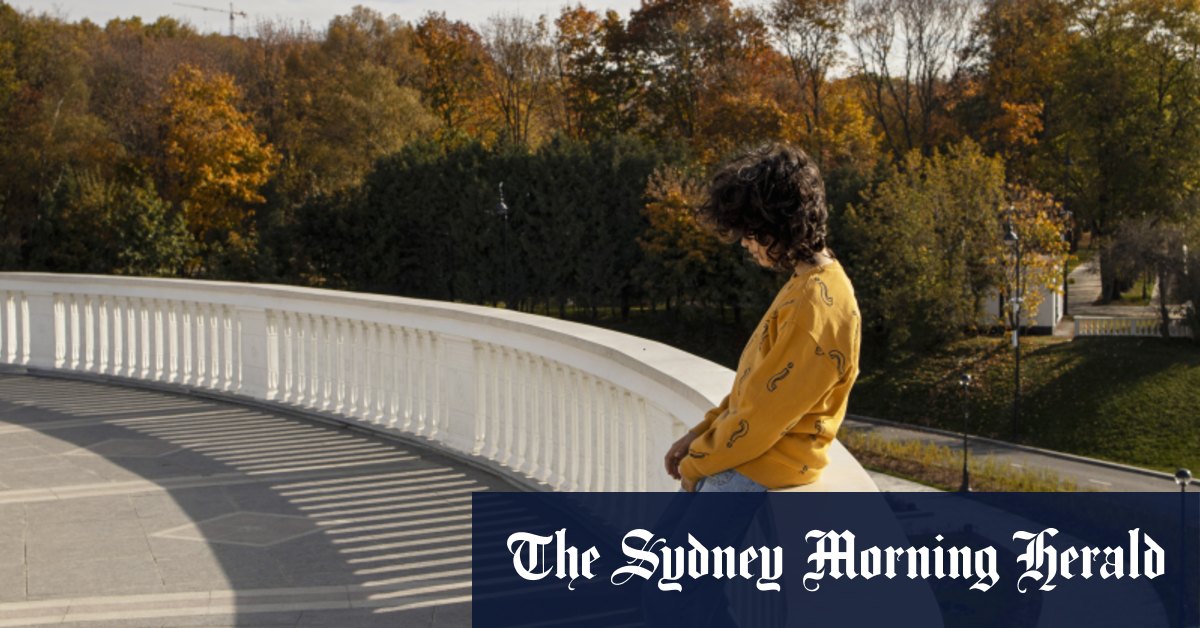Janey was pointing at Melissa. “You can’t play with us today, you’re different,” she said, at first meaning the clothes we were wearing. I looked at the translucent white of her pointing arm, over to the rough tan of Melissa, then back down at the brown of my hands.

Author Arani Ahmed.
I was darker than Melissa, but I wasn’t aware of it at school. Everyone around me, the kids from my neighbourhood, my teachers, had made me believe that I looked like them because they were all that I saw reflected at me. I spoke in the way of any child brought up in Sydney’s western suburbs, and I brought sandwiches to school in a red lunch box but more often than not had $2 in my pocket for a meat pie from the canteen.
Melissa looked at us, at me, and said, “I’m different? But what about…” Janey nodded, and I made a slight shake of my head. We three glanced at each other, our minds struggling with a thought that was raw, unjust, and under-prepared. Melissa scrunched up her face, turned and galloped away, wiping tears from her eyes.
Later that day, I would go home and catch my reflection in the bathroom mirror above the sink. Large, brown eyes, small lips, big ears, hair stretched back into a glossy black ponytail, frazzled ends along my hairline.
Looking back at me was a face I didn’t recognize, in more ways than one. My hands turned on the tap, and lines of dark brown freckles dotted my skin. These I mistook for dirt and so I scrubbed. I washed once, twice, I washed three times. But when I was done my hands were the same.
My crush that year was a boy named Ryan, the first in a series of skinny gay boys and later queer men that I would fall for, repeatedly and consistently. He had Nick Carter hair, parted in the middle and falling into his eyes, and a piercing in his right ear lobe. I used to kick him under the table. I have used to blush and ignore me.
Others gossiped that he was gay, because of his piercing: “Don’t you know? That’s why it’s in the right.” That made him, somehow, all the more enticing. I would go on to spend my high school years joking that I was “a gay man trapped in a woman’s body”.
These were the only words I had at that age. Inaccurate and hurtful today, I would say them flippantly, an idea so far-fetched in my corner of the world that everyone excused its meaning.
Twenty years later, when I first, with honesty, let the word “transgender” form on my lips, it felt right in one language, and pushed me further away from the other. I had spent years grappling with pieces of a broken tapestry, trying to draw connections with what memories would surface and break through. I tried to translate that word and my thoughts, to lay down those feelings in a way I could share with my family, but there was no common ground or history I could grasp. I’d never seen a “me” before that encompassed all parts of that whole.
The fight took place on two fronts; two worlds thought to be incompatible but which comprised the fundamental parts of me. If neither part could exist, then how could I exist?
Two worlds thought to be incompatible but which comprised the fundamental parts of me. If neither part could exist, then how could I exist?
It was only important that I didn’t fail. To tell my parents was to take that battle from inside and let it culminate on the surface of my body. At the heart of it was the knowledge that I existed as an extension of those around me. If I transformed my body, I would also be transforming the fundamental parts of my ma, my dad and my brother.
When I did open my world to them, we were sitting in the living room of my childhood home. I stumbled through broken Bengali and imprecise English, attempting to untangle a truth I had only ever learned to hide.
Papa, after sitting silently, intently, seriously, while I stammered my way through half-formed sentences and waves of emotion said to me, “I wish you would have told me earlier. I could have supported you.” And in that moment, when my heart was open and bare, I had a lurching, impossible thought: Okay. Let’s go back then. Let’s go back and try again.
loading
It would take a few more years until I recognized myself in my reflection, still learning to love. Standing over the bathroom sink I looked at the lines of freckles along my arms, up to my face and my own patches of beard. I let that wide-eyed child hold my hand, remembering what they had learned.
I rubbed the shaving gel on my face and let the razor pull down to reveal my brown, queer skin.
Between Two Worlds: 30 Powerful Voices from the SBS Emerging Writers’ Competition (Hardie Grant), judged by Tara June Winch and Behrouz Boochani, is out now.
The Booklist is a weekly newsletter for book lovers from books editor Jason Steger. Get it delivered every Friday.
